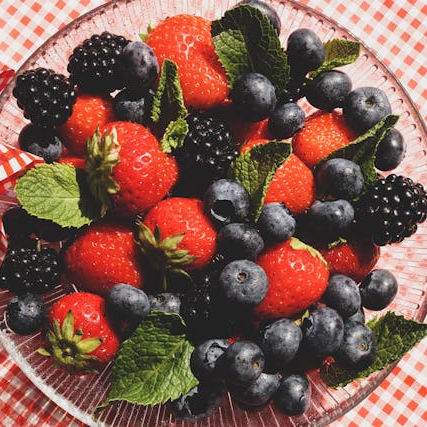
29 Apr The 10 Best Detox Foods To Eat When Detoxing From Alcohol
Nutrition can significantly help with alcohol detox. It’s essential to focus on:
- Hydration
- Managing cravings
- Consuming nutrient-rich foods like berries, whole grains, and lean proteins
- Avoiding sugary and fatty foods
Diet plays an important role during the alcohol detox process, especially for those detoxing at home. A nutritious diet that is rich in detox food can significantly help the body eliminate the toxins that have built up from prolonged alcohol use. This food detox approach helps replenish and nourish the body with the right nutrients to support recovery properly and minimize withdrawal symptoms.
In-Home Alcohol Addiction Recovery with Elite Home Detox
Elite Home Detox provides typical rehabilitation clinic services to the comfort of a patient’s home. Because each patient’s situation and demands are unique, our thorough treatment approach is personalized to the individual.
In-home alcohol addiction recovery is a modern option for today’s hectic, fast-paced lifestyles.
Hydration: The Foundation of Detox
Hydration is one of the most important factors in the detox process as it helps flush out toxins from the body.
When going through alcohol withdrawal, the body is at an increased risk of dehydration. This is due to alcohol’s diuretic effect, which increases fluid loss. Ensuring adequate water intake counteracts these effects.
Water supports the liver and kidneys in processing and eliminating toxins, which leads to a more efficient detoxification process. Staying hydrated can also help alleviate some of the uncomfortable symptoms associated with withdrawal, such as headaches, fatigue, and dizziness.

By ensuring proper hydration, individuals can significantly improve their overall well-being and support their body’s natural detox processes.
Table of Contents:
Understanding Cravings During Alcohol Withdrawal
Many people experience intense cravings for sugar and carbohydrates during alcohol withdrawal. This is mainly the result of neurotransmitter imbalances and a deficiency in serotonin, a brain chemical responsible for regulating moods. Drinking alcohol in moderation can temporarily boost serotonin levels, leading to feelings of happiness. However, chronic use of alcohol can disrupt this balance, resulting in cravings for alcohol and foods that can mimic these serotonin-induced feelings of well-being.
Substituting alcohol with high-sugar and carb foods only offers a temporary solution and can lead to unhealthy eating habits. Managing these cravings is important for a successful detox process. Strategies include consuming balanced meals rich in proteins, healthy fats, and complex carbohydrates. This helps stabilize blood sugar levels and enhance your mood naturally. Incorporating foods high in tryptophan (a serotonin precursor), such as turkey, nuts, and seeds, can also help combat serotonin deficiency and reduce the urge to eat sugary and carb-heavy foods.
Comprehensive Food Guide for Alcohol Detox
From the best detox food to specific rehab food, here are the most important food categories that are tailored to support your body throughout the detox process, help combat cravings, and promote overall well-being.
Berries such as blueberries, strawberries, and raspberries are some of the best detox food options available. These fruits are rich in vitamins, minerals, and natural sugars, perfect for combating cravings that often accompany alcohol detox. The antioxidants in berries also support the body’s natural detoxification processes, which can help repair alcohol-related cellular damage and promote overall health.
Whole grains are the foundation of food cleanses as they can provide the body with essential fiber and slow-release carbohydrates. These nutrients are essential for maintaining energy levels throughout the detox process. Foods like oats, brown rice, and whole wheat deliver sustained energy throughout the day. This prevents the spikes and crashes often associated with refined sugars and helps to manage cravings more effectively. Their high fiber content also helps with proper digestion and supports a healthy gut microbiome.
Green vegetables like broccoli, asparagus, and spinach are powerful foods for detox. They’re rich in Vitamin B, which is crucial for energy production and the repair of neurotransmitter functions that can be affected by alcohol misuse. These vegetables also contain L-glutamine, which is an amino acid that plays a key role in reducing cravings for both alcohol and sugar.
Cayenne pepper is known as an excellent food for detox because of its ability to help reduce cravings. Its capsaicin content helps to boost metabolism and also helps with alleviating nausea and stimulating appetite, which are common challenges during alcohol detox.
Fatty fish, such as mackerel and salmon, are considered some of the best food for alcohol detox due to their high omega-3 fatty acids and Vitamin D content. These nutrients are very important for heart health and play a significant role in the alcohol recovery process. Omega-3 fatty acids reduce inflammation and support brain health, while Vitamin D can improve mood and overall well-being during detox.
Sunflower seeds are an excellent choice to eat when drinking or during detox, thanks to their amazing ability to boost dopamine levels. Dopamine is the “feel-good” neurotransmitter and can often be depleted during alcohol withdrawal. This can lead to feelings of depression and low motivation. Including sunflower seeds in your diet can help replenish dopamine levels, providing a more positive detox experience.
Beef, beans, and nuts are vital for anyone undergoing detox because of their high zinc content. This makes them crucial for eating food when drinking alcohol or during recovery. Zinc plays a vital role in immune function, wound healing, and cell division. Ensuring an adequate intake of zinc-rich foods can support the body’s recovery process, enhancing the immune system’s ability to fight off infections and heal from the damage that may have been caused by alcohol misuse.
Bananas are an excellent food to eat after drinking as they are very rich in potassium. This mineral is vital for heart health and helps to properly balance the fluid levels in the body. Also, bananas can help with dopamine production and offer a natural way to reduce cravings and improve your mood during the detox process.
Choosing whole wheat bread over white bread offers many important health benefits, especially concerning food and alcohol recovery. Whole wheat bread is packed with magnesium and fiber, which are essential for properly satisfying hunger cues and ensuring steady energy levels throughout the day. Fiber helps improve digestion and plays a role in the elimination of toxins, while magnesium supports hundreds of biochemical reactions in the body, including energy creation and muscle and nerve function.
Incorporating iron-rich foods like chicken, tofu, beans, and lentils into meals is important for anyone in rehab. Iron is essential for the formation of hemoglobin, which is a protein in red blood cells that is responsible for transporting oxygen throughout the body. Adequate iron levels ensure that organs and tissues receive the oxygen they need for healing and proper function.
Foods to Avoid During Alcohol Detox
During an alcohol detox, it’s essential to avoid certain types of alcoholic food and alcohol food that can hinder the recovery process. Specifically, greasy, fatty foods and those that are high in sugar should be reduced. These foods can make the withdrawal symptoms worse and make the detox journey more challenging. Greasy and fatty foods can strain the liver, which is already working hard to eliminate toxins from alcohol consumption. This additional burden can slow down the detoxification process and make feelings of nausea and discomfort even worse.
Excessive sugar is also not recommended as it can lead to spikes and crashes in blood sugar levels. These fluctuations can increase cravings for alcohol as the body looks to gain the quick energy boost that sugar provides. Plus, sugar can increase feelings of anxiety and irritability, adding to the emotional challenges of withdrawal.
Balanced Diet Strategies for Detox
Incorporating a balanced diet into your routine is essential for anyone going through an alcohol detox. Including a variety of nutrient-rich foods ensures your body gets the vitamins and minerals it needs for a successful recovery. Focus on including the best food for drinking recovery, such as lean proteins, whole grains, fruits, and vegetables, in your daily meals. These foods provide the nutrients that are necessary to support liver health, help in the detoxification process, and replenish the body’s depleted resources.
Nutrition’s Role in Alcohol Recovery
The journey through alcohol detox is not only about eliminating alcohol from your system; it is also about nurturing your body back to good health. Nutrition plays a very important role in this process and provides all of the essential building blocks for proper repair and recovery. Emphasizing good food to eat before drinking and the best food to eat when drinking proves that there are proper preventive measures to be taken that can help minimize alcohol’s impact. However, during detox, prioritizing a balanced diet rich in vitamins, minerals, and hydration is crucial to support the body’s healing process. The detox and recovery journey can be challenging and requires comprehensive care, and nutrition is just one very important piece of the puzzle.
In-Home Alcohol Addiction Recovery with Elite Home Detox
Elite Home Detox brings the services of a traditional rehabilitation clinic to the comfort of a patient’s home. Since every patient’s circumstances and needs are different, our comprehensive treatment plan is tailored to the individual.
In-home alcohol addiction recovery is a modern solution for the busy, fast-paced lifestyles of today.
Personalized attention
Unlike a traditional addiction rehabilitation clinic, where patients meet in groups, in-home rehab means that our patients get dedicated, one-on-one attention.
Elite Home Detox provides a 24/7 onsite medical professional to monitor the patient, make changes to the treatment plan as necessary, and answer any questions that the patient, friends, or family may have. We are with our patients every step of the way to ensure a safe and healthy recovery with long-lasting results.
Convenient and private
Both inpatient and outpatient clinics require patients to travel to their destination. This is not only costly, but it also requires a significant amount of the patient’s time. In-home addiction rehabilitation works with the patient’s schedule, minimizing disruptions while maximizing results.
Some people may find group therapy beneficial. However, since addiction recovery is an intense and involved process, many patients prefer discretion while rehabilitating. That’s why Elite Home Detox brings our services directly to our patients for unmatched convenience and privacy.
Comprehensive, quality care
From genetics to social environment, many factors can contribute to a person developing an addiction to alcohol. These same factors need to be addressed during alcohol addiction rehab for a successful and lasting recovery. From detox to counseling that helps patients develop healthy coping mechanisms, Elite Home Detox offers the same services and quality of care as traditional rehab clinics.
Our team is thoroughly trained in addiction recovery, and every program is overseen by our medical director to ensure quality care.


